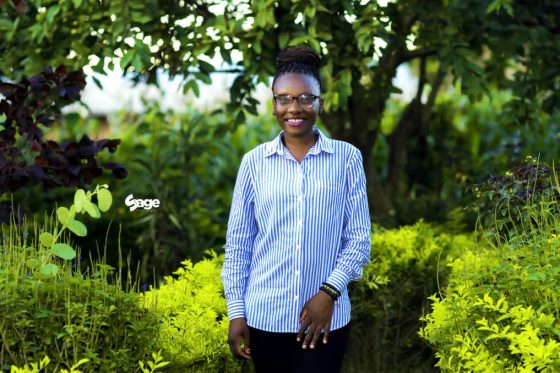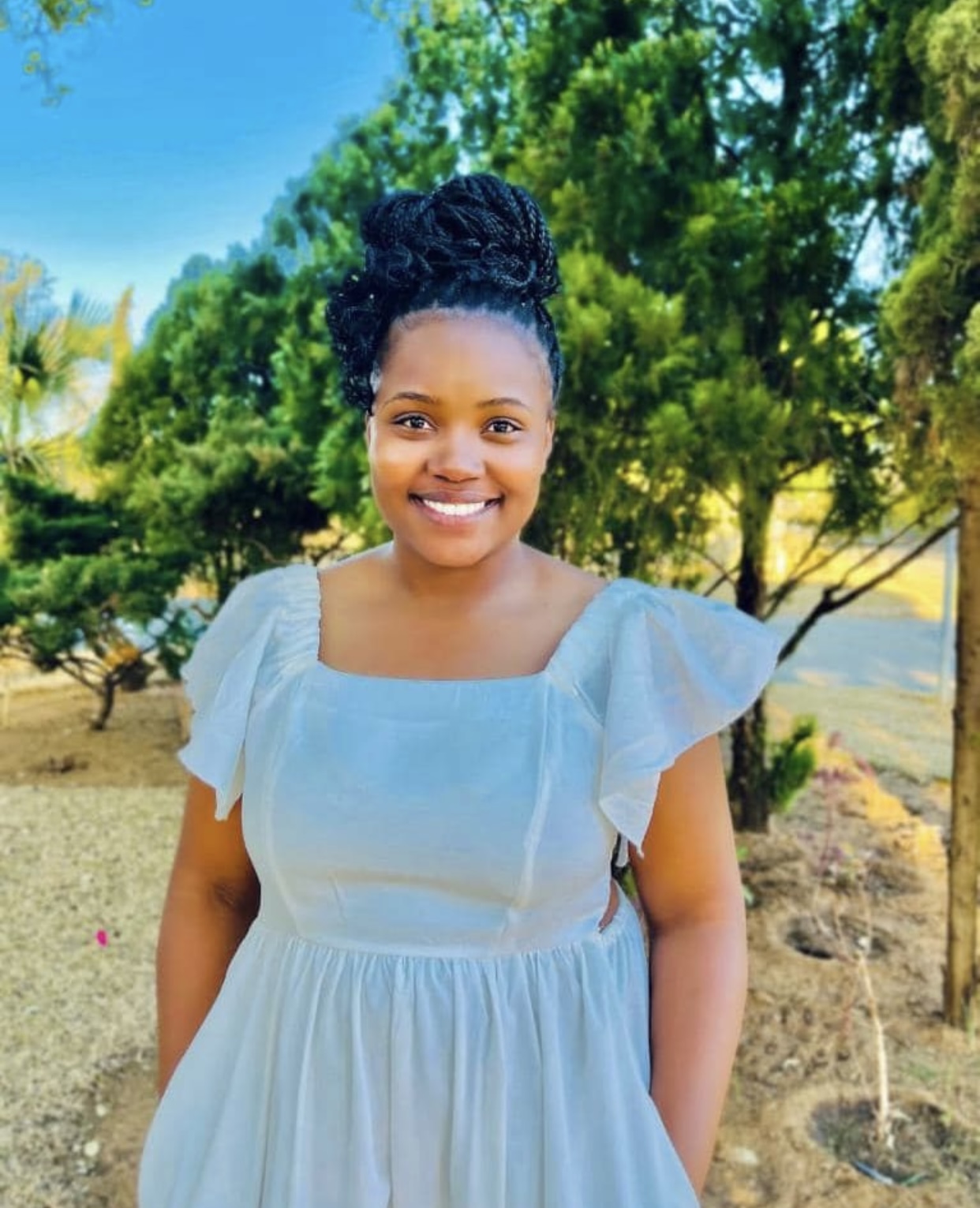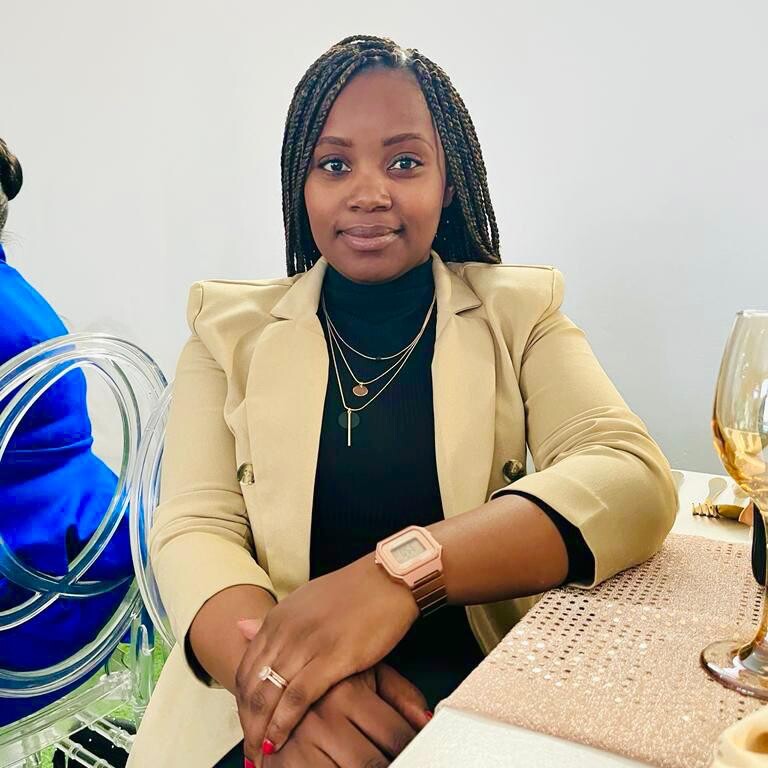Cathrine's deep connection to Malawi is so inspiring
Meet Cathrine, a young Malawian woman who was born and raised in Zimbabwe. Despite growing up far away from her ancestral land, Cathrine was always drawn to Malawi and its beautiful landscapes. As a child, she dreamt of one day visiting her parent's homeland, and when she finally did, it was love at first sight. She was captivated by the lush greenery, cultivated fields, the rolling green hills, and the friendly, welcoming people of traditional rural African villages. 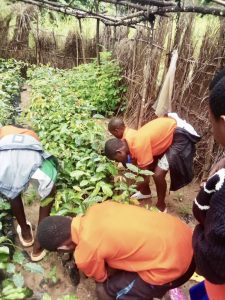
Cathrine's connection to Malawi deepened over time, even as she faced various social and financial challenges that forced her to leave her country. She never forgot the warmth and kindness of the people she had met there, and she remained committed to helping them in any way she could. 
In 2021, Cathrine finally returned to Malawi to settle in her parents' village of Tukombo, located in the Northern region where the Tonga-speaking people reside. She was eager to reconnect with her roots and to make a positive impact on her community. She reached out to the Traditional Authority (TA) of the village's land to understand the most pressing needs in the area, and she was determined to find a way to help, even though she had no resources of her own.
Cathrine's unwavering dedication to her community inspired her to seek out like-minded friends who shared her vision of creating a better Africa for present and future generations. Together, they embarked on a journey of asking for assistance, and Cathrine was humbled by the overwhelming response from her friends, who were eager to help her build her village and work towards creating a better Africa, one village at a time. Despite having limited resources, Cathrine was able to make a significant impact on the lives of those in need in her village by providing assistance and support whenever needed. 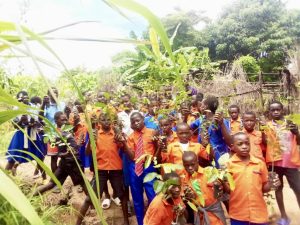
Cathrine's passion for the environment led her to get involved in a tree-planting project in her community of Tukombo. She collaborated with Chifundo from the DFFE, and together, they planted trees in a school and an elderly home. Cathrine had to seek permission from the Chief, Zilakoma - Mr Wellington, to run the project on their land, and he was eager to assist Cathrine in carrying out her vision to transform the landscapes while preserving the cultures and traditions that her ancestors had worked so hard to build. Her approach to the tree-planting project was unique and inspiring. She not only taught pupils how to plant trees but also explained why it was important and how to care for them. She encouraged each student to plant trees with a purpose and to name each tree they planted so they could nurture and protect it as a living treasure. Cathrine's dedication to planting trees and helping those in need is truly admirable. Her efforts have given hope for the future of our planet and the natural world. Her story is a testament to the fact that one person can make a significant difference in their community with determination and a clear vision.
Naledi’s Story On Navigating Mental Health Challenges And Finding Purpose
Sometimes, we suffer in silence. I started having mental health issues at a young age, not knowing what they were exactly, and in turn, they formed part of my personality. These mental health issues then started being apparent in my early adult years; they were a manifestation of all my childhood traumas. I learned that I had depression and anxiety when I went to varsity and did more research on what I was going through.
I found that I had all the symptoms: I had no desire to live, I had given up and struggled with being in social situations and articulating what I wanted or needed, and I was very withdrawn and always very negative-minded. Because I was quiet, my mind was a dangerous place to live in. I then attempted to commit suicide with failure. I had a support system that tried their best to help me overcome this even though they didn’t understand what I was going through.
As time went on, I then started to read self-help books because I was tired of living in constant pain. I didn’t want to survive; I wanted to live. I drove myself out of the pit of depression even though it was a very long and tough battle. Today, I am happy I get to tell my story. There’s a lot that people go through and never get assistance or even self-help. Mental health issues are a very vital part of our overall health as they distort views of an individual in so many ways. It is important to keep healthy habits for our mental health so we can not only live but thrive.
If I were to offer advice to someone going through similar mental health challenges, my primary suggestion would be to find the root cause of their distress because mental health challenges often stem from deeper, underlying issues. Identifying what specifically triggers your emotional responses and understanding the reasons behind these triggers are crucial steps. Uncovering the ‘whys’ paves the way to addressing and resolving the core issues at hand. While this approach may prove beneficial for some, it’s important to acknowledge that it might not be effective for everyone.
Moreover, it’s important to allow yourself to experience and process your emotions fully – but refrain from acting impulsively on negative thoughts, as such actions can be harmful and sometimes even worse. Allowing yourself the space to express feelings such as sadness or anger is very important for releasing stress. For those who find it difficult to express emotions openly, journaling could be a helpful option.
Above all, if you’re struggling with mental health issues, I think it is important to be kind to yourself more than anything. Practice self-love through doing things that make you feel alive and happy. This helped me to find myself again and to find purpose in little things.
Kedibone's journey of triumph over countless traumatic encounters
Growing up in a family of six individuals, which consisted of my grandmother, father, mother, uncle, sister, and myself, my life embarked on a challenging journey from the very beginning. I remember one fateful year, 1998 to be precise when I was just a Grade 1 learner, my innocence was brutally threatened when my father attempted to commit an unthinkable act against me. It was this horrifying incident that served as a catalyst for my mother’s decisive action. She acted swiftly, putting my safety and well-being above all else, immediately breaking all ties with my father on that very same day.
Following this traumatic episode, we found ourselves under the sheltering care of my maternal grandparents, where we sought solace from 1998 until 2003. This period came to an unfortunate end when my mother, due to circumstances beyond her control, lost her job. The loss of her employment forced us to confront an unforgiving reality. The message we received from those around us was a harsh one: We were no longer welcome, and our presence was deemed undesirable because my mother was no longer working – therefore unable to contribute financially.
With our world suddenly overturned, we were forced to adapt to a life of renting. Fortunately, my mother managed to secure a place in the suburbs where the owners were residing on a farm. Their generosity allowed us to stay there rent-free, in exchange for maintaining the property and its grounds until their return.
However, as the inevitable passage of time would have it, the owners eventually returned, marking the end of our stay there. We embarked on the search for a new place to call home, ultimately settling in a distant location. During this time, the responsibility of caring for my ailing mother fell upon my sister and me, as we were the only ones willing to provide the support she so desperately needed. It was a challenging period as we faced indifference from other family members who chose to remain detached from our struggles.
The critical moment arrived when my mother’s health took a turn for the worse, and the weight of her care fell squarely on my sister and me. It was a challenging responsibility to hold the roles of a child, student, and caregiver all at once. It was a trying time for both of us, especially given that we were still pursuing our education. Our school principal eventually became aware of the unfortunate circumstances we faced at home, leading to a decision that would alter the course of our lives. He intervened, arranging for us to move back to my grandparent’s house, my mother’s parents, where we could receive the support we so desperately needed.
Despite our return to my grandparents’ home, my sister and I continued to shoulder the responsibilities of caregiving, as other family members remained apathetic to our situation. Tragically, the day arrived when my mother, who had endured so much suffering, passed away. I was in Grade 10, and my sister was in Grade 12 when we bid our final farewell to her. The circumstances of her passing are imprinted in my memory; she left this world while resting on the floor next to me, calling out in search of my sister, who was absent at that critical moment and occupied with her studies.
After my mother’s funeral, we faced yet another daunting decision. With no other viable options, we were compelled to return to our father’s home, a place where the shadows of our past still loomed in the air. It was a difficult period, characterized by my father’s apparent inability to fulfill the role of a father. Instead of offering guidance and support, he sought solace in the numbing embrace of alcohol. At times, I questioned my worth, believing that I was the root cause of our family’s disintegration, stemming from that failed, sinister attempt in 1998.
My father’s actions further compounded my anguish. There were moments when he would unleash his fury, directing his anger at me while I diligently pursued my studies. The situation became unbearable, ultimately forcing my sister and me to seek refuge with our boyfriends, despite knowing that it was far from an ideal choice. We yearned for a respite from the constant tension that sufficed our lives. Regrettably, this decision led to an unimaginable tragedy – my sister’s untimely death at her boyfriend’s hands. She was strangled and her lifeless body was discarded in the bushes near a graveyard. The traumatic loss of my sister served as a stark reminder that my safety was far from guaranteed in such circumstances, compelling me to return to my father’s home.
The year 2007 was particularly cruel to me, as it marked the loss of my mother. In 2008, while I was in Grade 11, I became a mother myself, navigating the turbulent journey of motherhood at a young age. Just a year later, in 2009, that’s when my sister’s life was tragically cut short (when my baby was a mere three months old). At this point, I found myself at a crossroads, having completed my matriculation but falling short of the academic success I had aspired to achieve. The weight of the world rested on my shoulders as I pondered how to forge a path forward for myself and my child.
In 2010, I secured employment at a salon, embarking on a new chapter of my life as I provided hairdressing services to clients. It was a means of survival, a way to ensure that my child and I had a roof over our heads and food on the table. Life moved forward, and by 2012, I made the momentous decision to return to school to pursue rewriting my matric. I journeyed to Welkom, where I enrolled in school, determined to make the most of this opportunity.
However, fate had other plans for me. During my pursuit of education, tragedy struck once again when my uncle met a gruesome end, his life claimed by a sharp object. His lifeless body was discovered on the street not far from my father’s residence, necessitating my return to attend his funeral. The interruption in my education was regrettable, but familial responsibilities took precedence.
During this period, my baby girl resided with her father while I stayed with my ill father, offering him the care and support he so desperately needed. Despite the conflicting history between us, a glimmer of hope emerged. The birth of my son brought about a transformation in my father. He stepped into the role of a loving and caring father, providing the warmth and support that had long been absent from our relationship. This newfound connection was a silver lining during the storms that had defined our family dynamics. I named my son “Tshepo,” a name that carried the weight of hope, reflecting the newfound optimism that emerged from this chapter of our lives.
In 2015, I secured a position at Senwes company, marking a significant milestone in my professional life. However, the shadows of adversity continued to haunt me. In 2016, I found myself subjected to the unthinkable when my manager sexually assaulted me. Fearful of losing my job, I endured a harrowing experience, surrendering to his unwanted advances. It wasn’t until a particularly dreadful incident when he cornered me in the workplace kitchen and molested me, that I found the strength to break my silence. I fled to the police station, determined to seek justice for the unspeakable violation I had endured. The matter was taken seriously, leading to his immediate suspension.
Despite resolving this traumatic ordeal, the workplace environment at Senwes remained fraught with challenges. A pervasive undercurrent of racial prejudice persisted, with many of my colleagues harboring beliefs from the apartheid era, hindering the prospects of black individuals striving for growth and leadership roles.
In response to the ongoing stress and turmoil at work, I made the difficult decision to resign from my job in 2019. However, my commitment to my father’s well-being remained unwavering, and I continued to provide support during his illness. Surprisingly, the birth of my second child had a transformative effect on my relationship with my father. His role as a loving grandfather to my son paved the way for reconciliation, bridging the chasm that had long divided us.
The year 2020 brought yet another devastating loss. My father’s health took a turn for the worse, and I was once again faced with the responsibility of being his caregiver. Despite the resentment that had festered over the years due to his neglect, I chose to set aside those feelings and care for him during his final moments. It was a complex and emotionally charged period, marked by conflicting emotions, yet it allowed for a measure of closure. Later that year, I faced yet another profound loss with the passing of my father. During this challenging time, the absence of extended family support was acutely felt, leading me to keep certain aspects of my story hidden. I refrained from casting blame or painting individuals in a negative light, choosing instead to let the story unfold as it did.
Despite the trials and tribulations that have marked my journey, I draw strength from a symbol of hope – a plant I affectionately call “hope.” It serves as a tangible reminder of the transformation that unfolded in my relationship with my father, sparked by the birth of my son. I nurture it with care and even engage in conversations with it, finding solace and inspiration in its growth.
My decision to leave my job was necessary to safeguard my mental health, given the toxic environment I had endured. I found myself laboring alongside individuals who clung to outdated beliefs, obstructing the progress of black individuals striving for success. It’s ironic that, at certain junctures in my life, I battled suicidal thoughts. However, I look back on those dark moments with a newfound perspective.
In 2003 and 2004, I consumed a cup of my mother’s pills in a desperate bid to escape my pain, but the attempt proved futile. Later, upon returning to my father’s home, I made another futile attempt to end my life. These experiences, while harrowing, ultimately failed to extinguish my spirit. The turning point came in 2008 when grappling with the turmoil at work, I ingested all my antidepressants in a desperate act. It should have marked the end, yet I awoke in a hospital bed, unable to speak or comprehend my surroundings. The presence of strangers further compounded my confusion.
That crucial moment was a wake-up call, a profound revelation that life held a purpose for me beyond the darkness that had once enveloped me. It was a divine intervention that spoke to me, revealing that there was a path forward, one where I could serve a greater purpose in this world. I abandoned the idea of ending my life, choosing to alter its trajectory.
My story is a testament to the resilience of the human spirit. It is my hope that my journey, marked by its twists and turns, will serve as a source of inspiration for others facing their own trials. We possess the power to change direction, to forge a new path in life, even when circumstances are at their bleakest. Prolonged exposure to toxic environments can take a heavy toll on our mental, psychological, and emotional well-being. Yet, I stand here today, a survivor who refused to succumb to despair.
While I cannot claim that I am flourishing, I can affirm that I am in a better place than I once was. There are moments when old wounds are reopened, triggered by the echoes of the past, but I persevere. Throughout my teenage years, I resisted the temptation to surrender myself to exploitation for financial gain. Instead, I chose the path of hard work and determination, driven by the desire to provide for myself and my children.
In conclusion, my life’s journey has been filled with adversity, loss, and unimaginable challenges. It is a narrative of resilience, transformation, and the enduring power of hope. My experiences have shaped me into the person I am today, a survivor who has emerged from life’s trials with the strength to inspire and motivate others. My story serves as a reminder that, even in the darkest of times, we can change our course and move forward, leaving behind the toxic influences that threaten to consume us. It is my sincere hope that my journey will offer solace and encouragement to those in need, reminding them that there is always a path forward, no matter how hard the road may be.
“In the end, I became more than what I expected. I became the journey and like all journeys, I did not end, I simply changed directions and kept going.”
– Kedibone Mahlatse
Instagram: Keddy_bonny
Facebook: Kedibone Mahlatsi
I was born African
To be born African means to have been born on the African continent, which is the second-largest and second-most populous continent in the world. Africa is a continent with a rich history and diverse cultures, with over 54 countries and more than 1.3 billion people.
Being born African can mean different things depending on peoples’ experiences and upbringing. For many, it means being part of a vibrant and diverse community with its own unique traditions, languages, and customs. It can also mean facing challenges such as poverty, inequality, and political instability that have been prevalent in many African countries.
Being born African can also mean having a deep connection to the land and its resources, as many African cultures are deeply rooted in agriculture and natural resources. It can mean having a sense of community and family that is strengthened by shared experiences and cultural practices.
However, it is important to note that being born African does not define a person’s identity or limit their potential. African people have made significant contributions to the world in various fields such as science, arts, politics, and sports, and continue to do so. Being African can be a source of pride and identity, but it should not be a limiting factor in a person’s personal or professional aspirations.

